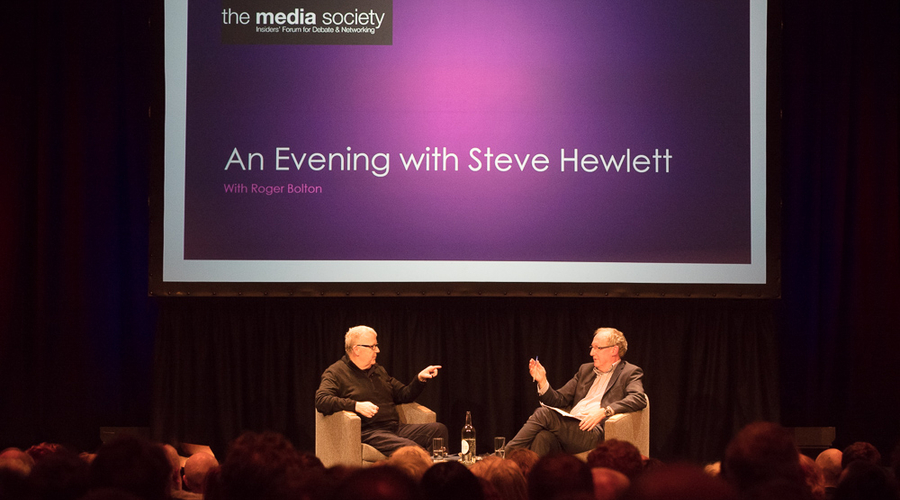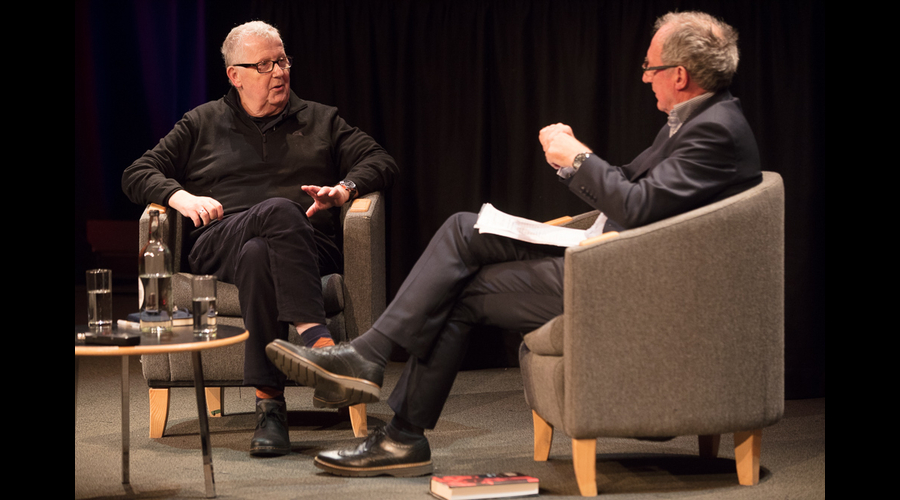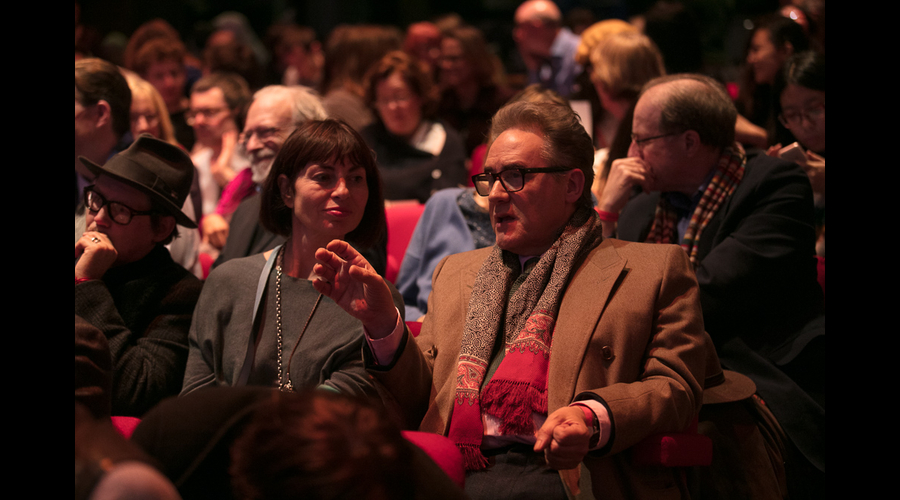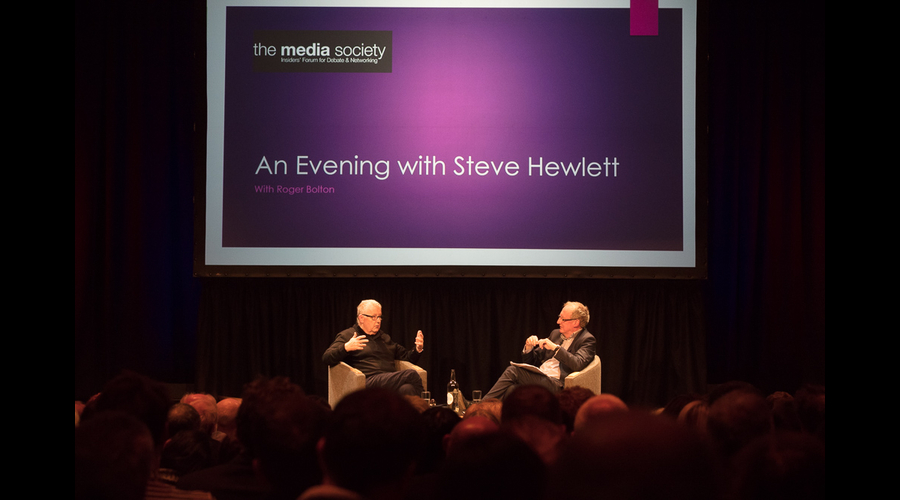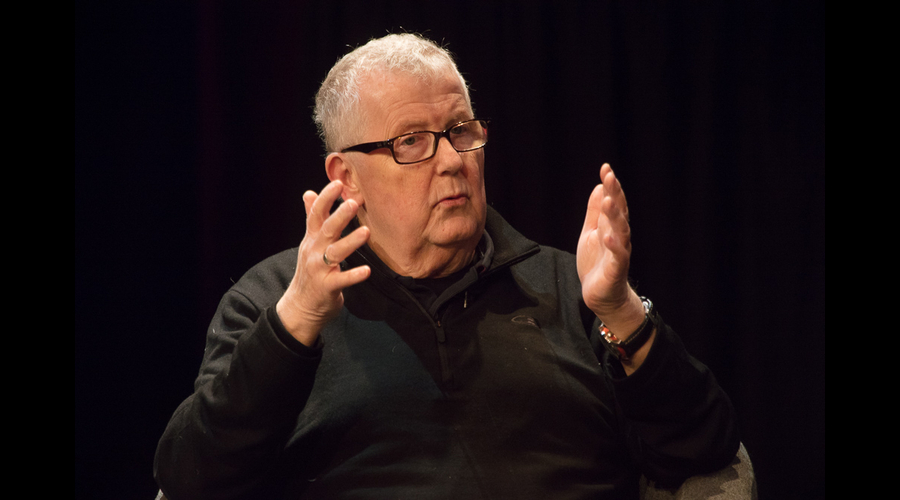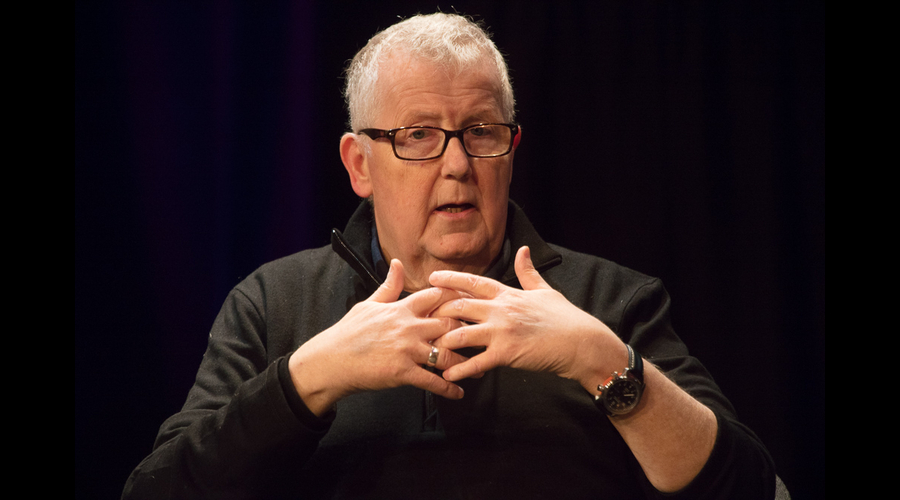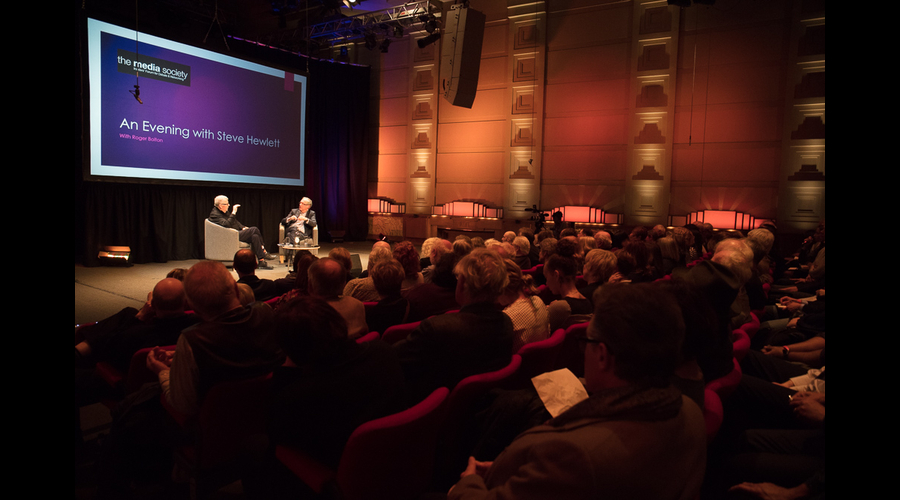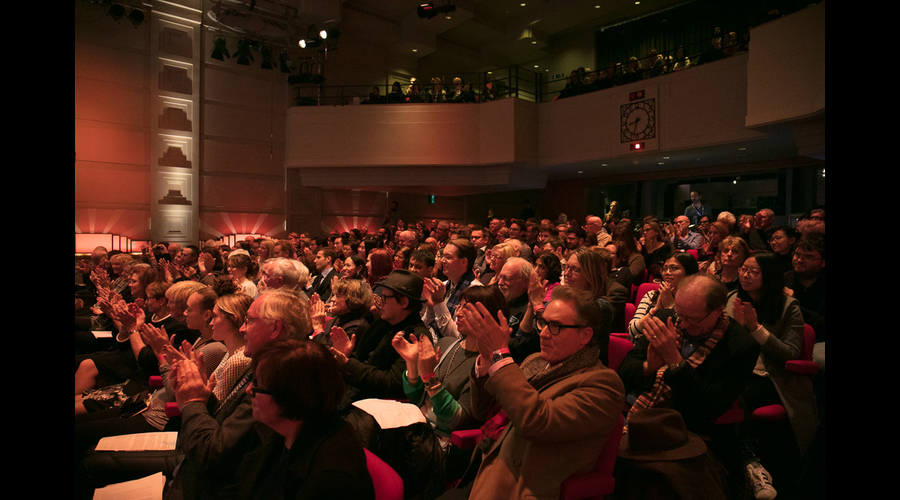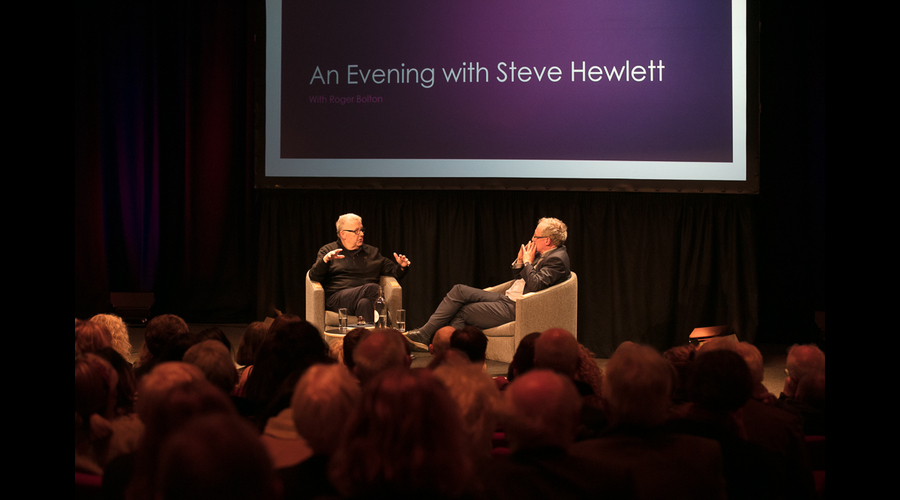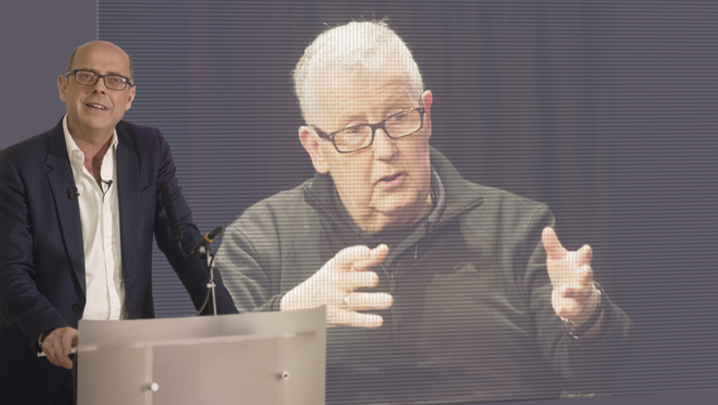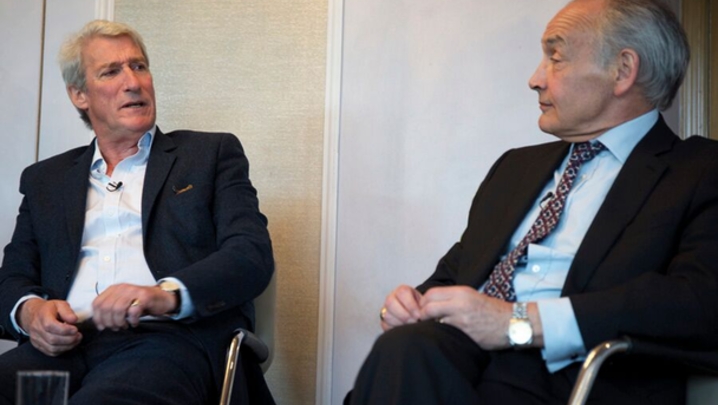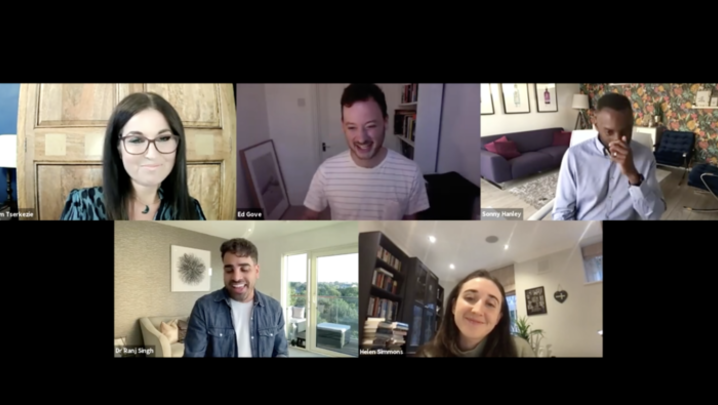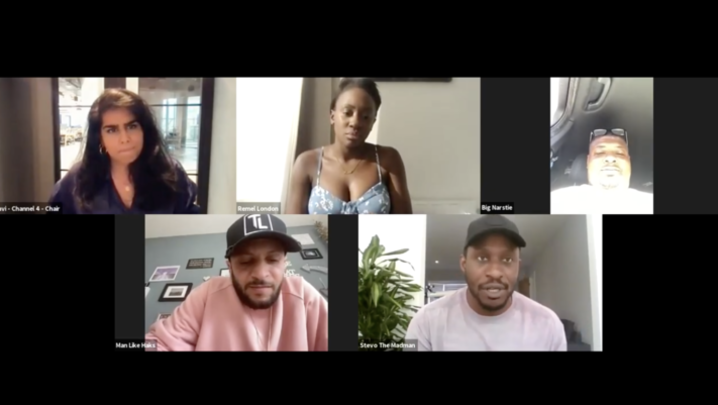The very best journalists are often awkward, dogged characters who hate taking no for an answer.
So it is with Steve Hewlett, presenter of Radio 4’s Media Show and a person who is responsible for some of the most important TV scoops of the last 30 years.
The 1995 Panorama interview with Princess Diana, edited on his watch, was seen by almost 23 million viewers.
Hewlett has also worked on programmes covering The Troubles in Northern Ireland, including a film on Bloody Sunday, and tracked down Colonel Gaddafi.
Back in March, Steve was told by doctors that he was suffering from a very aggressive form of cancer.
The prognosis was not good but because of his own tenacity he was able to discover a treatment option - albeit an expensive one that he has to pay for himself - which appears to be defying the odds.
Eight months later and Steve is still alive and very much kicking.
This was abundantly clear to those 300 or so people who recently packed into the BBC Radio Theatre on a windswept Friday evening to hear him speak against doctor’s orders about his career and his attitude towards the cancer.
“It’s a bit weird, I feel like I’m attending my own wake,” was Steve’s typically mordant opening remark.
From then onwards there was little stopping the Hewlett humour as Roger Bolton, one of his first BBC bosses, posed some pithy questions concerning Hewlett’s life at the BBC and beyond.
So how had it all started? Well, actually, it almost ended before it began.
Hewlett’s activities as a student activist, including “a massive rent strike,” at Manchester University, came to the attention of the BBC’s notorious Brigadier Stonham, the spook whose job was to vet BBC staff.
When current affairs show Nationwide wanted to give Steve his first BBC contract, his boss’s request was initially rejected.
Bolton, then editor of Nationwide, told the personnel department that was not going to let them dictate who he hired as a researcher.
Eventually Steve was given an extended contract but by then he had decided to go and work in independent production on Channel’s 4 trailblazing Friday Alternative and Diverse Reports.
These programmes, unlike BBC current affairs shows, deliberately set out to be subjective. They also liked to undermine the prevailing liberal view on a particular issue such as capital punishment.
“Channel 4 did lots of stuff in the arts, religion and current affairs and in drama which upended the TV consensus,” said Steve.
“The problem Channel 4 has now - and I do accept it is more difficult now in a way - is what its defining purpose is. I think they are struggling to find one.”
Panorama was, of course, a very different programme. Steve had first worked for it as a freelancer at the very beginning of his career. In 1995, he took over the show as editor.
Bolton asked Steve where his sense of intellectual self-confidence came from. “Of course I felt overawed by things but I thought, if I could work in a bar and just about keep things together, then everything would be fine. And I never felt I had a great deal to lose.”
By the time of that fateful edition of Panorama shown in November 1995 he did, of course, have a great deal to lose.
At one point during the machinations surrounding the programme’s production Steve wondered if he’d be fired because he was worried the interview with Diana would end up being too soft.
“I remember the production team had come to talk about it at my house in Shepherd’s Bush.
“The minute they left I felt the bottom drop out of my stomach. I thought it will be shit.
“The only thing that was worse than not having this interview was that it would be fawning nonsense. I felt that could be career ending.”
When he eventually saw the interview he knew that it was literally jaw-dropping.
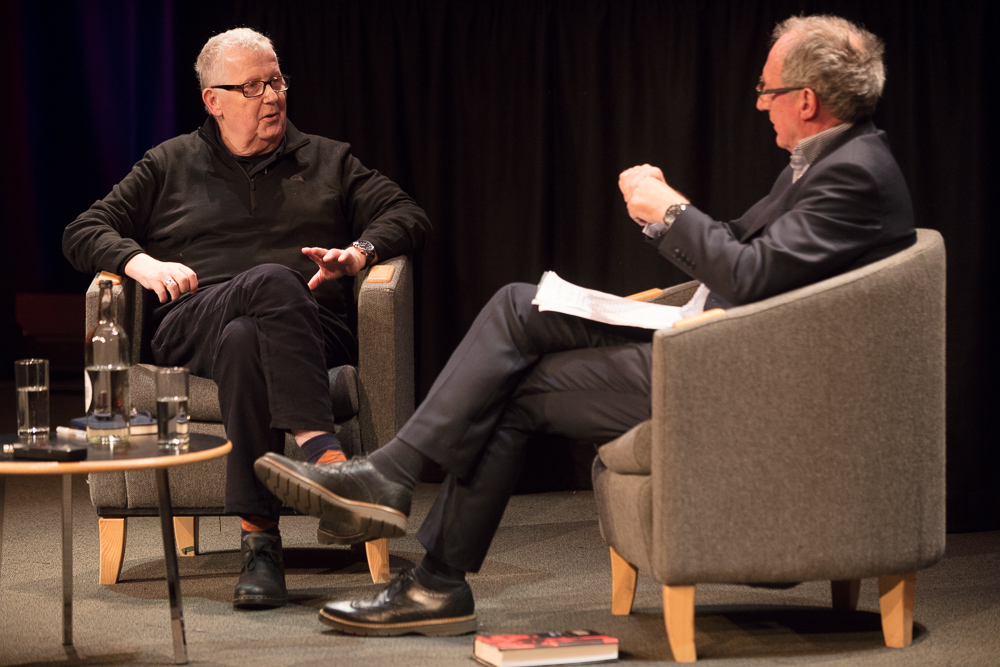
Steve remembered viewing a rough cut of the film with several BBC executives, including the then head of news Tony Hall, head of current affairs Tim Gardam and controller of editorial policy Richard Ayre.
“After about three minutes, one by one their mouths dropped open. There was not a murmur in the room.
“We get to the end of it and no one says a word. Richard Ayre winked at me…talk about pregnant pause. It went on and on. Eventually Tim Gardam said: ‘Well, he’ll never be able to marry Camilla now.’”
So how had Steve managed to keep the programme secret from the rest of the Panorama team? After all, the show employed some of the world’s best investigative journalists.
“I said we were doing a top secret story about police corruption and that shut them all up.”
He added: “The hardest thing was to keep it from Alan Yentob (then controller of BBC One). Everybody knew that if Yentob got the faintest whiff of it, it would be everywhere.”
At the top of the BBC hierarchy the politics of interviewing Princess Diana were nightmarish.
No one involved needed reminding that the then BBC chairman, Marmaduke Hussey, handpicked by Mrs Thatcher, was the husband of Lady Susan, one of the Queen’s ladies in waiting.
With breathtaking naivety the Princess’s only condition for the interview - she didn’t ask to see the questions beforehand or seek approval of the final cut - was that she would tell the Queen she’d been interviewed by Panorama before the broadcast.
Once this had been done, the BBC launched the show to the press – without the then Director General John Birt having told Hussey about the interview.
Steve remains hugely impressed by the way Birt handled this: “He was absolutely committed to the BBC doing this programme and showing it. There was no interference of any description. Birt took a huge personal risk.”
Relations between the DG and the chairman, already strained, took a nose dive but Birt kept his job.
Hewlett, meanwhile, was tipped as the next controller of BBC One.
The job instead went to Peter Salmon, something Steve has never regretted since Salmon was not given the resources to do the job effectively.
Steve did, however, reach the top of the TV greasy pole - as director of programmes at ITV station Carlton.
Ultimately, however, the corporate life sat less comfortably on his shoulders than that of being an uppity journalist who gets his kicks from asking difficult questions.
“At Carlton, I ended up in the bizarre corporate politics of an ITV company where people don’t understand television,” Steve recalled.
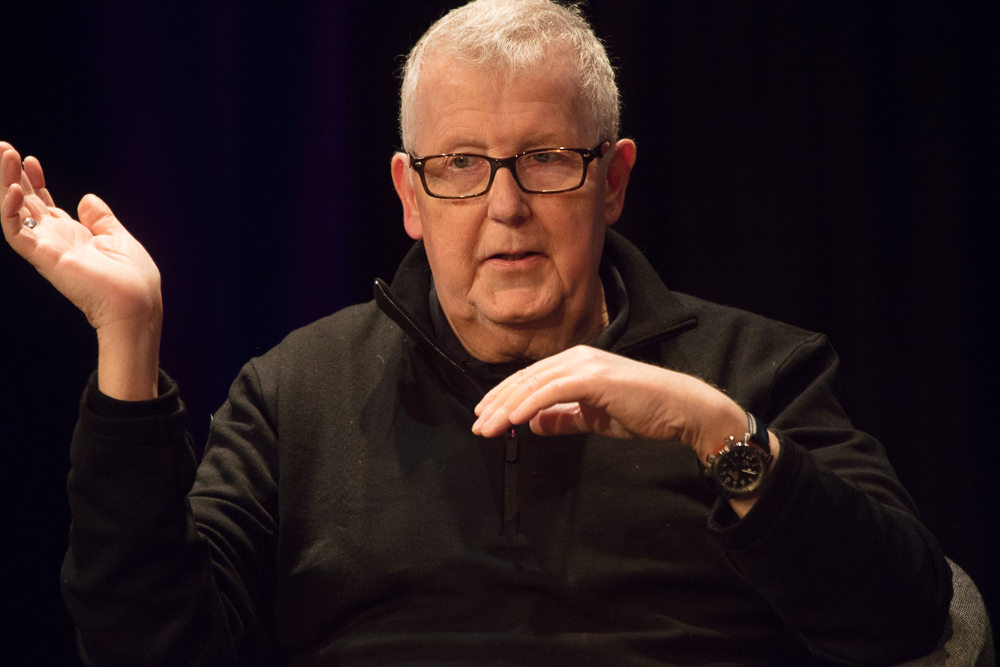
When he was made redundant by Carlton, he put together a portfolio career. Steve wrote a weekly media column for The Guardian and in 2008 started presenting The Media Show.
He also continued to make TV programmes, included a stand-out film whose subject was Rupert Murdoch and his relationship with Britain.
If anyone was expecting a simple hatchet job on the media mogul they would have been disappointed. “Don’t get me wrong, Murdoch is not saint but the true story of Murdoch has a lot more to it than the caricature…
“He clashed with almost every branch of what you might call the British establishment.”
Turning to his illness, Bolton asked if effectively reporting on his own body (as well as appearing on Radio 4’s PM Hewlett writes a diary for The Observer) was helping him deal with the disease.
“I approached the whole thing with my journalistic head on. I was doing it before I spoke to anyone, before PM came on the scene or any of that.
“I was doing it with the Health Authority, that’s how I managed to get from Hertfordshire to the Royal Marsden and get the right course of treatment.
“Navigating the system a little bit of journalistic nous (comes in handy). I don’t know how my 86-year-old mum would do. It would never occur to her.”
He added: “It helps me in the sense that no one is walking on egg shells. I’m quite open about it…
“I might have weeks, I might have months, I might have years, I might have a long lifespan. All these things are possible.”
An Evening With Steve Hewlett was a Media Society event held with support from the Royal Television Society at the BBC Radio Theatre, Central London, November 25. The producer was John Mair.
All photos by Paul Hampartsoumian

